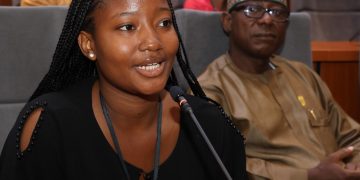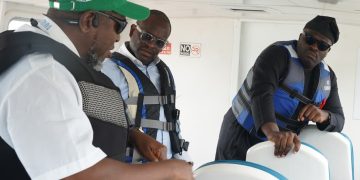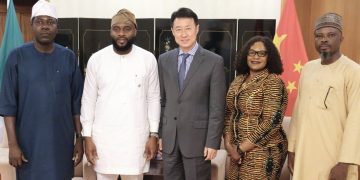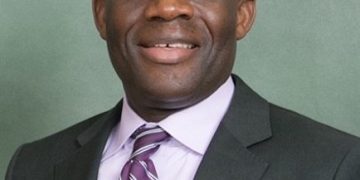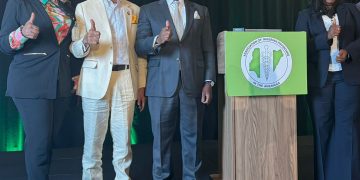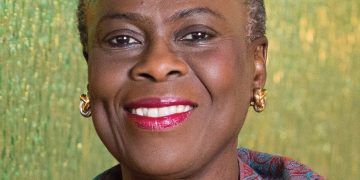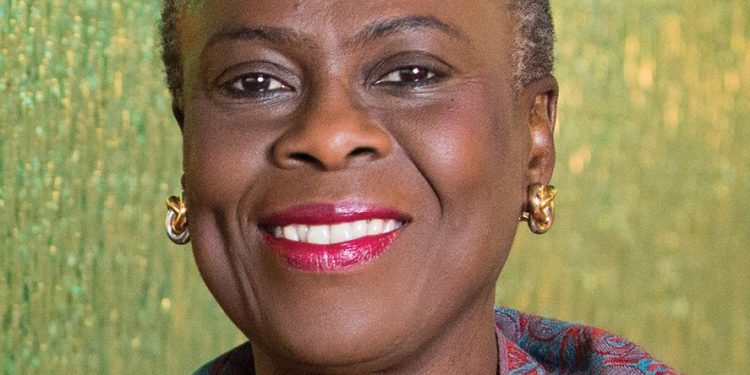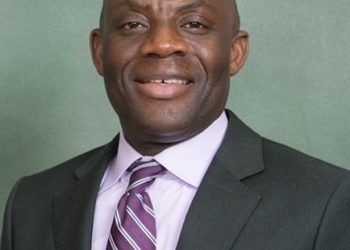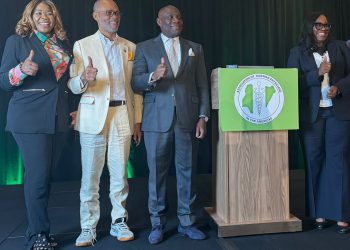- Chairperson of the National Health Research Committee (NHRC), Dr. Olufunmilayo Olopade
By Anthony Nwachukwu
In a renewed effort to improve citizens’ health and deepen global health solutions and breakthroughs, the Federal Government has inaugurated the National Health Research Committee (NHRC).
Led by hematology oncologist and Distinguished Service Professor in Medicine and Human Genetics at the University of Chicago, Dr. Olufunmilayo Olopade, the13-member committee of experts is saddled with driving government’s vision of achieving health and well-being for Nigerians through medical research.
Inaugurating the committee in Lagos Thursday, the Minister of State for Health and Social Welfare, Dr. Tunji Alausa, said the establishment of the NHRC was “a bold statement of commitment to advancing health outcomes for our people.
“In the face of evolving health landscapes, our commitment to a robust, evidence-driven healthcare system has never been more crucial.”
Alausa expressed confidence in the committee, which is populated by Nigerian experts at home and abroad in different fields of health and medicine, charging it to go beyond expectations as “a beacon of hope, an intellectual powerhouse that will steer us through the complex seas of health challenges.
“Its role is pivotal – it is the engine that will drive our nation’s health research agenda. However, I ask that we all go beyond what is expected of us to achieve what is unprecedented.”
To achieve that, he urged collaboration, stating: “Today, we bring together brilliant minds from diverse fields in medicine, public health and research. The power of collaboration lies in its ability to catalyse innovation. I challenge the committee to foster inter-disciplinary partnerships, breaking down silos to tackle health issues comprehensively.
“In this era of rapid technological advancement, we must harness the power of innovation. I envision a Nigeria where technology is not just a tool but a transformative force in healthcare.
“The committee’s endeavours should embrace artificial intelligence, telemedicine and other cutting-edge technologies to revolutionise healthcare delivery.”
Moreover, “as we embark on this journey, let us uphold the highest ethical standards. Transparency in our research processes is non-negotiable. Building and maintaining public trust are essential for the success of our initiatives. The committee must be a beacon of integrity, ensuring that every research endeavour contributes to the betterment of society.”
Government further urged the committee to extend its health research beyond laboratories and clinics to the heart of Nigerian communities, and actively engage with the people, understanding their needs, concerns and aspirations, while also actively collaborating with international partners, sharing knowledge and contributing to the global discourse on health.
“Moreover, the committee will play a crucial role in ensuring standards, transparency and accountability in health research,” Alausa said. “This is imperative for building trust among our citizens and international partners, fostering a research environment that is both credible and impactful.”
Accepting the task, NIMR Chairperson, Dr. Olopade, said she was “acutely aware of the challenges that lie ahead and I’m committed to leading this committee with diligence, transparency, and a deep sense of purpose.
“Our mandate is clear – to foster a robust and dynamic health research ecosystem that addresses the pressing health issues facing our nation.”
According to her, “as Nigeria seeks to navigate the complexities of modern healthcare, the role of research becomes even more crucial. It is through research that we can understand the specific health needs of our people, ‘leap frog’ to innovative solutions, and ultimately improve overall health outcomes in our nation.”
She commended the government for “prioritising health research and the pivotal role it plays in achieving sustainable development in any nation,” stating that her appointment “acknowledged “the significance of advancing quality, person-centered healthcare through rigorous scientific inquiry in the era of precision medicine.”
Olopade noted that Nigeria is home to a diverse and vibrant population with some unique healthcare challenges, adding that with an estimated population of over 225 million, Nigeria is home to one in five black persons in the world.
Citing data from transatlantic slave ship records and genetic ancestry, she estimated that nearly 70 per cent of African Americans have genetic roots in Nigeria or West Africa.
Therefore, “we have the responsibility to lead innovation in healthcare for this population and have the potential to transform the society and revitalise economies in low resource settings across the African diaspora.”
Olopade further expressed confidence in the crème of accomplished scholars on the committee with their unique and highly innovative programmes in communicable and chronic non-communicable diseases, including sickle cell disease, diabetes and cancer.
To make their job successful, she urged government to “give health researchers the opportunity to work collaboratively by opening supply chains, fostering increased demand for high quality healthcare, and helping build sustainable ecosystems that will create jobs for highly trained young people to practice in Nigeria.”
And rather than worsen the current high-rate brain drain, she expressed hope that the “next generation of Nigerian trainees should have unprecedented opportunities to benefit from ‘brain circulation’ that can fuel economic recovery, following what has seemed like an unending Covid-19 Pandemic that revealed gross inequities in global health systems.
Noting that the U.S. and other high-income countries are committed to developing scientific partnerships with researchers in Africa, she said the committee will not achieve its lofty goals without significant financial support and a cultural shift within Nigeria, as well as within the donor community.
Therefore, “the committee must collaborate with researchers, scientists, healthcare professionals and policymakers to bring forward bold ideas and ensure that our efforts are coordinated and impactful.
“Together, we must strive to generate and promote evidence-based practices, enhance healthcare delivery science, and contribute new knowledge in health sciences.”

